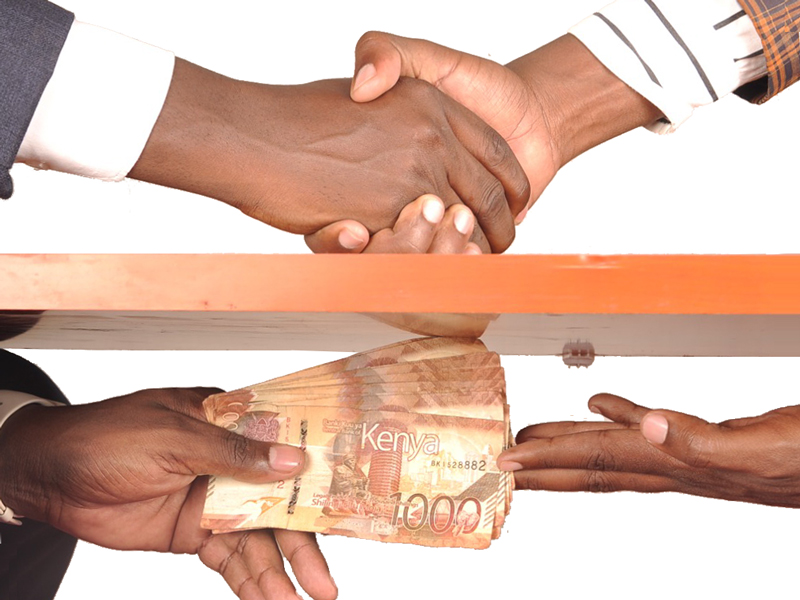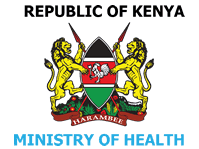The tobacco industry uses various tactics to oppose, delay, and disrupt the adoption and implementation of tobacco control policies.
One such tactic is the use of front groups. However, because the use of front groups is extensive, we have discussed it at length in the next section. The infographic below outlines how some tactics have been used in Kenya:Tobacco Industry Interference Tactics
Interference in policy
Interference in policy development and implementation
Interference in policy development and implementation has led to watered down legislative provisions.

In 2015 the Kenya Revenue Authority (KRA) adopted a flat-rate tax system on cigarettes of KES 2.50 per cigarette which contributed to a 17% decrease in tobacco consumption. Mastermind Tobacco Kenya Ltd lobbied against this measure through media advertisements that claimed that the flat rate benefitted their main competitor, British American Tobacco. Consequently, in 2017, the National Treasury Cabinet Secretary ordered the KRA to revert to the old tiered excise tax system.
CSR
Use of Corporate Social Responsibility CSR
The tobacco industry uses CSR to portray itself positively and market its products and brands.

In 2010, after tobacco farmers began to diversify from tobacco farming, British American Tobacco Kenya (BATK) launched an insurance scheme for tobacco farmers in partnership with UAP Insurance Kenya and Chancery Wright.
Years later, in 2017, UAP paid out Kes 79.5m to tobacco farmers. This acts as an incentive to farmers to continue growing tobacco by giving the impression that the insurance company would pay them if things should go wrong.Discrediting proven science
Discrediting proven science
The tobacco industry has attempted to dilute anti-tobacco public health messaging through sponsoring research that understates the health impact of tobacco use.

British American Tobacco Kenya (BATK) funded a research project titled “Epidemiological study into the relationship between smoking and heart disease” by Professor K. Ojiambo, who at the time was serving as the head of the Cardiology Department at the School of Medicine in the University of Nairobi.
Their motivation for the project was to develop a friendly association with one of Kenya’s leading medical specialists, gain access to medical thinking at the highest level, be seen to be conducting their business in a highly responsible way, and use the research results to counter some of the wilder allegations about tobacco-related disease epidemics in developing countries.
Receiving benefits or incentives
Receiving benefits or incentives
The tobacco industry seeks incentives from the government to create a favourable business environment for itself.

LYFT, a new smokeless oral tobacco product by British American Tobacco Kenya (BATK), was introduced to the market in 2019.
The tobacco industry applied for and secured initial registration for LYFT, under the Pharmacy and Poisons Act, as a pharmaceutical drug, thereby shielding LYFT from stricter regulation in Kenya as a tobacco product under the Tobacco Control Act.The Cabinet Secretary for Health has since revoked this registration and LYFT is now subject to similar tobacco control measures as other tobacco products.
Unnecessary interactions
Unnecessary interactions with the tobacco industry
The tobacco industry seeks opportunities to be seen in public with prominent government officials so that it can be portrayed in a positive light.

In 2019, during the Kenya Exporter of the Year Awards (which is a project of a state agency, the Kenya Export Promotion Council), the then Deputy President of Kenya, Dr. William Ruto, together with the Cabinet Secretary for the Ministry of Industry, Trade, and Cooperatives, the Hon. Peter Munya, attended the Gala Dinner where BAT won the Solid Rock Commendation (Lifetime Achievement) award.
Lobbying
Lobbying
The tobacco industry makes financial contributions to political parties, political candidates and government officials to influence tobacco control policy decisions.

In an attempt to influence the choice of a track and trace system intended to control illicit trade (in favour of Codentify), British American Tobacco Kenya (BATK) made payments amounting to USD 28,749 to sources within the Kenya Revenue Authority and USD 38,645 to former Kenyan Justice Minister Martha Karua, who was running a presidential campaign at the time in exchange for intelligence.
Conflicts of interest
Conflicts of interest / revolving door
Conflicts of interest are created by appointing people who serve or have served in the tobacco industry or have represented its interests in strategic positions in government. This gives the TI access to policy makers.

Betty Maina, former Chief Executive Officer of the Kenya Association of Manufacturers (recently served as the Cabinet Secretary in the Ministry of Industrialisation, Trade and Enterprise which declared tobacco as an essential product during the COVID-19 pandemic, despite the relationship between tobacco use and severe COVID-19 outcomes.



